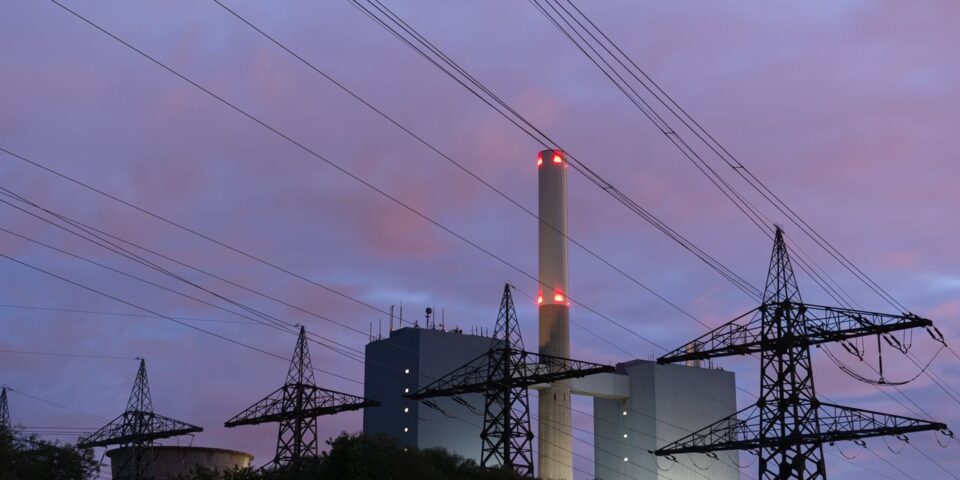
Germany will take a 30% stake in Uniper SE UN01 -26.19% and provide a bailout deal after the ailing utility company was hit hard by dwindling supplies of Russian gas and rising energy prices.
Uniper, Germany’s largest importer of Russian gas and one of Europe’s largest utilities, has hemorrhaged cash daily as it has been forced to buy supplies at much higher prices from alternative sources after Russia reduced deliveries in June.
Russia restarted the Nord Stream pipeline on Thursday after 10 days of annual maintenance but supplies continued to be capped at 40% of its capacity. Moscow blamed technical problems for the Nord Stream shortfall, which German officials have described as an economic attack.
With a total price tag of around 15 billion euros, equivalent to $15.3 billion, in government-funded equity and credit lines, the bailout makes Uniper one of the biggest corporate victims of Russia’s campaign to weaponize gas deliveries to Europe.
Uniper shares whipsawed after the bailout announcement and were last down around 27%.
German Chancellor Olaf Scholz interrupted his vacation to announce the rescue of Uniper, as part of a broader set of measures to tackle the energy crisis.
“Uniper is of great importance for economic development in this country…and its energy security,” Mr. Scholz said at a press conference.
“We will do everything that needs to be done and we will do it as long as it’s necessary and we will emerge as a stable country from the challenge posed to energy markets by Russia’s illegal attack on Ukraine,” he added.
If Moscow cuts supplies further—something President Vladimir Putin has warned could happen—Europe could fail to fill up its gas reserves ahead of winter, kneecapping an economy already grappling with surging inflation.
As part of the bailout package, the government will provide further capital of up to €7.7 billion against issuance of mandatory convertible instruments. German state-owned KfW bank will boost its existing credit facility for Uniper to €9 billion, from €2 billion. On Monday, Uniper said it had drawn down the 2-billion-euro credit line from KfW.
Berlin will allow Uniper to pass on some higher energy costs to customers from September or October, Mr. Scholz said. The chancellor said the government would take measures to shield vulnerable households from the price increases.
“You’ll never walk alone—nobody will be left alone with their challenges, not a single citizen, and not the entrepreneurs of this country,” Mr. Scholz said.
German Finance Minister Christian Lindner said Uniper shareholders would participate in the rescue by seeing their shares diluted. He said the plan would include caps on executive pay and a ban on dividends.
Uniper Chief Executive Klaus-Dieter Maubach said he was relieved about the decision and that it would help stabilize the company.
“This ensures that Uniper can continue to reliably supply its customers, including numerous municipal utilities and industrial companies, with energy,” he said.
The rescue has been widely flagged in recent weeks after Berlin rushed in new legislation allowing it to step in to support critical infrastructure operators in an emergency.
In general, European governments have taken increasingly assertive steps to control their energy markets, as prices soar and Russian energy supplies dwindle.
This month, the French state offered to nationalize power company EDF SA in a deal worth $9.8 billion. EDF, the world’s largest owner of nuclear-power plants, is vital to Europe’s energy supply, but has been grappling with a litany of issues for years.
Uniper, which generates electricity across Europe and trades gas around the world, was already in trouble before Moscow’s invasion of Ukraine. In January, it was forced to borrow around €10 billion from its parent company, Finnish utility Fortum Oyj, and KfW bank, after soaring gas prices hit profit.
The Finnish government, the majority shareholder of Fortum, hailed the agreement on Friday as the “best possible compromise under these circumstances and schedule.”
In May, credit-ratings firm Standard & Poor’s warned of Uniper’s exposure to Russia, and lowered its rating a notch to BBB-, the lowest investment-grade rating. S&P analysts said that market disruptions related to Russia’s actions won’t subside soon. Also working against Uniper is the difficulty of replacing natural gas with scarcer, more-expensive coal and gas, S&P said.
Uniper Chief Financial Officer Tiina Tuomela said Friday that the stabilization measures reduce the high daily cash outflow the company incurred due to the Russian gas supply restrictions, which had been a key concern by the credit-rating firms.
“Overall, the composition of the stabilization package aims at securing Uniper’s investment-grade rating, which was a common objective shared by all parties involved in the negotiations,” Ms. Tuomela said.
High gas prices since last year also hit the company. When gas prices jump, so do the margin payments tied to contracts that energy companies had taken out as hedges for sales of gas and electricity. Several small energy suppliers in the U.K. went bust last year after failing to hedge against rocketing prices in the wholesale market.
Uniper said it would hold an extraordinary meeting to obtain shareholder approval for the measures.
Write to Georgi Kantchev at georgi.kantchev@wsj.com and Bojan Pancevski at bojan.pancevski@wsj.com
Copyright ©2022 Dow Jones & Company, Inc. All Rights Reserved. 87990cbe856818d5eddac44c7b1cdeb8


